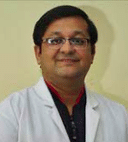Post And Pre Surgery Care - Know About It!
Hello,
I am Dr. Rahul Poddar, General Surgeon. I am practicing from last 12 years. Today we are here to discuss some important issues often asked by patient and missed from discussing due to lack of time and communication between surgeon and patient. We are here to discuss the preoperative and post-operative care that is needed and that makes the surgical outcome better. The first thing we need to understand here is whatever procedure like treatment, invasive or non-invasive is given on any person's body, the response to that treatment is 90% or even more dependent on the body itself and the factors related to the body itself. The 10% will be managed by the surgeon and 90% for what we are here to discuss is depends on the patient. It has to be made better and can give a significant difference in outcomes and is often life-saving. So, the first part is the care that is needed before the surgery.
Before the surgery, the most important factors are dietary and lifestyle factors. The nutritional factors are build up over a long term diet and although cannot be improved in a short term basis. Whenever any surgery or treatment is required, the body would be able to do in a better position. So, for good nutrition, it is very much important, the best nutrition that our body can have plants. Friends, I would suggest, eat plants. This is the best nutritional diet that you can have before any surgery and treatment. What do we mean by plants? Plants mean fruits, salads, sprouts, green vegetables. These are the things which are missing in our diet. If a diet is containing more than 60-70% of these things at least more than 50%, much of the toxic content is neutralized. Almost all multivitamins, proteins are completed with this diet. Rest all can be supplemented with the various pulses. And the 3rd things are fat. Fat is also very important. The more natural oil we consume is better for the body. Refined oil is very harmful to the body. Oil should be taken as per the requirement. 4th is cereals. These are the least important part of the diet. Should be taken as per the requirement.
For a good physical activity person, we should take more cereals. Next is about lifestyle. Physical activities make our body, all kind of metabolism better. Even our mental health is affected by exercise. It also improves heart, lung, renal functioning. This is the pre-operative care. Other then these, there are many other factors which are specific to the surgery. Our BMI should be in a normal range. Lung capacity should be good. You should be doing yoga, paranayam to improve the overall health. The negative factors that deteriorate our health are smoking, alcohol, tobacco, junk foods, refined foods, packaged foods, all the foods that are saled in the name of good health. They are not actually for good health and should not be consumed. The more natural food we take, the better we will be. So, avoid all junk foods. Animal foods are very harmful to the body and should not be consumed. They are inferior in nutrition compare to plants. Now about post-operative care. Definitely, for every surgery it is different. There are some factors which are common.
The early recovery and the more the person will start walking and tries as per the tolerance, the better the recovery is. The earlier the diet is resumed, the better recovery it is. We have to avoid lifting weights. For hernia surgery, only a few months are required. And another part which is important is care of the wound, stitches. The care is very important for the first 2-4 days. If that period is completed without any problem, there is a layer of the epithelium that deposits and after that, even water can be allowed to fall on the wound and it doesn't penetrate in the wound. The first 2-4 days, the wound has to be kept dried. There should be no sweat secretion, no water entrance. More important that regular care has to be taken in the form that patient and Dr should be very vigilant about any signs of the wound or any infections like there is any pus discharge, redness around the stitches, gapping or any discoloration, swelling or any similar problem. If the problems are noticed earlier, they can be dealt in a much better way.
Thank You.


+1.svg)
